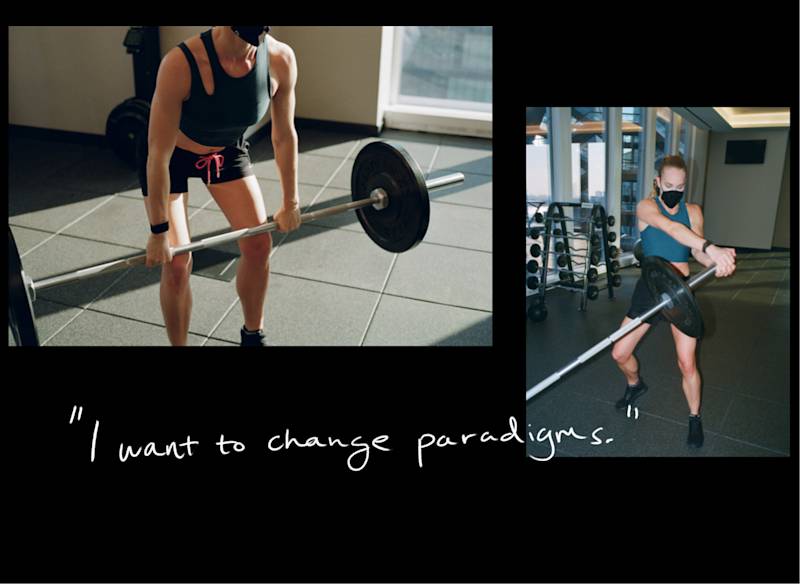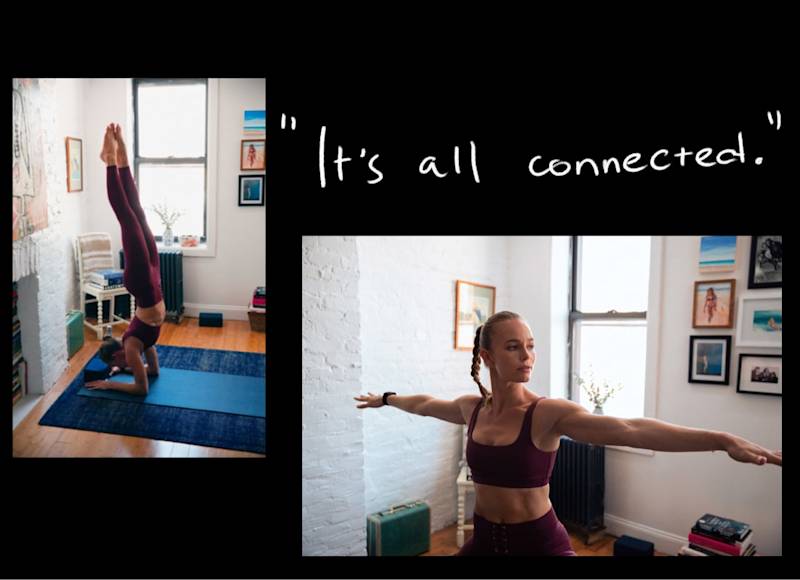Op-Ed: The Key to Vitality
By: Daisy Robinton
Equinox member Daisy Robinton gives new meaning to “the mind-body connection.” As a scientist, she uses her mind to take on challenges with the body. And as an athlete she takes on challenges with the body using the mind. She’s also an entrepreneur, building a business focused on women’s health. We’re highlighting her in our Welcome Forward campaign here and in her essay below.

My personal interest in fertility and ovarian health began when I was 31 years old. I had just gotten out of a long-term relationship and I thought to myself, “Well, I know I want children, but I don't want to feel rushed or stressed about finding a partner.” Because I'm a scientist, and I like to make decisions based on information, I went out in pursuit of learning more.
I started with a call to one of my mentors, a reproductive endocrinologist who runs a fertility clinic in California. She said, "I know you're a scientist, but I like to give a baseline mini lecture on reproductive biology and how your body works." What I was embarrassed to learn was that I knew very little about how my ovaries work, what’s going on in my body before, during, and after ovulation, and how that relates to my fertility.

What I have learned since is that ovarian function is not just about having kids—it’s incredibly important in maintaining our systemic health. The ovaries contribute to brain function, immune system function, and they impact our cardiovascular health and our bones, not to mention how they are critical in supporting our ability to feel vibrant and sexy, to look and feel good. What’s more, our ovaries age at an accelerated rate relative to the rest of our body, declining in function for most women by age 50.
As I learned more about my own fertility, I felt that it was such a failure of our education system and of our healthcare system to not better equip girls and women with basic information that's pertinent to how we make decisions about our bodies and our lives. And when I started looking more broadly at the academic biomedical literature and at clinical development to better understand female physiology, I found that the lack of attention and support for women’s health is a bigger, more widespread problem. This launched me into what has become the dominant aspect of my career, which is improving the state of women’s health through building a biotech company focused on ovarian health and longevity. The goal of my work is to support vibrant living, to create tools and therapeutics to enable women to feel good, to be healthy, and to live fully and vibrantly for as many years as possible.

In my opinion, I think a fertility assessment and an evaluation of the function of ovaries should be a standard workup for a young woman. If family is something that you think you want—and even if you're not sure—the earlier that you get some information on that, the better. That way, you can address any potential issues and weigh options like egg freezing. I'm not a medical doctor—I have a Ph.D. in molecular biology, not an MD—but I can confidently say that it's important to understand and monitor your reproductive health the same way you would any other aspect of your health. For me, that means getting an evaluation every couple of years just to check in and reassess my health and options.
To begin understanding your own reproductive health, have a conversation with your primary care doctor or OBGYN, or consider visiting a fertility clinic to get more information.